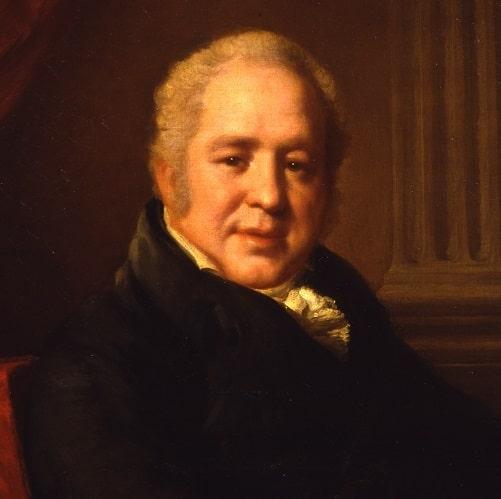Robert Hooper, M.D., was born in London and received his scholastic education under Dr. Rutherford, at Uxbridge; on leaving which he commenced the study of medicine in London, and became apothecary to the parochial infirmary of Marylebone. Shortly after his appointment to that office, he entered himself at Pembroke college, Oxford, and as a member of that house proceeded A.B.18th March, 1803; A.M. 28th June, 1804; M.B. 12th July, 1804.
Some obstacles being opposed to his further progress at Oxford, he was created doctor of medicine by the university of St. Andrews 16th December, 1805, and was admitted a Licentiate of the College of Physicians 23rd December, 1805. He settled in Savile-row, began to lecture on the practice of medicine, and for many years commanded a numerous class. He devoted much time to pathological anatomy, and accumulated a very valuable collection of morbid specimens.
Dr. Hooper was a man of immense industry, a sound practical physician, and a good writer, and was much esteemed by his professional brethren. His Physician’s Vade Mecum and his Medical Dictionary retain their popularity to the present time. He held the office of physician to the Marylebone infirmary, and long enjoyed an extensive and lucrative business. Having accumulated a competency, he retired from practice in 1829, and withdrew to Stanmore, but he died in Bentinck-street, Manchester-square on the 6th May, 1835, in the sixty-third year of his age.
We have from his pen—
Observations on the Structure and Economy of Plants : to which is added the Analogy between the Animal and Vegetable Kingdoms. 8vo. Oxford. 1797.
The Hygrology, or Chemico Physiological Doctrine of the Fluids of the Human Body, from the Latin of J. J. Plenck. 8vo. Lond. 1797.
A Compendious Medical Dictionary. 8vo. Lond. 1798. 7th edition, 1838.
The Anatomist’s Vade Mecum, containing the Anatomy, Physio-logy, and Morbid Appearances of the Human Body. 12mo. Lond. 1798.
Anatomical Plates of the Bones and Muscles reduced from Albinus for the use of Students and Artists. 12mo. Lond. 1802.
Observations on the Epidemical Diseases now prevailing in London. 8vo. Lond. 1803.
The London Dissector. 8vo. Lond. 1804.
Examinations in Anatomy and Physiology. 2 vols. 12mo. Lond. 1807.
The Physician’s Vade Mecum, containing the Symptoms, Causes, Diagnosis, Prognosis and Treatment of Diseases. 12mo. Lond.
The Surgeon’s Vade Mecum. 12mo. Lond.
The Morbid Anatomy of the Human Brain, being illustrations of the most frequent and important Organic Diseases to which that Viscus is subject. 4to. Lond. 1826.
The Morbid Anatomy of the Human Uterus and its Appendages: with illustrations of the most frequent and important Organic Diseases to which those Viscera are subject. 4to. Lond. 1832.
William Munk

